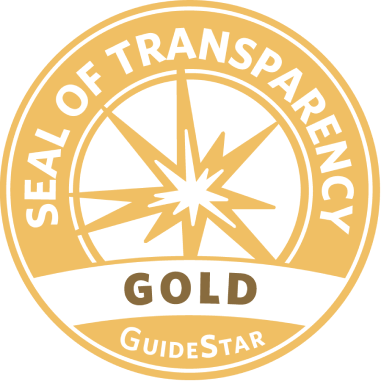Iran’s women face a challenging reality as they fight for safety, dignity, and equality in a society deeply rooted in patriarchal traditions. Gender-based violence remains a pervasive issue, affecting women across all social, economic, and geographical divides. Despite growing awareness and efforts to combat the problem, systemic barriers, cultural stigma, and restrictive laws continue to hinder progress.
Organizations like the Omid Foundation play a critical role in addressing these issues, providing support and advocacy for women affected by violence, and empowering them to rebuild their lives. This article explores the struggle for women’s safety in Iran, the obstacles that persist, and the impactful work of NGOs in this vital fight.
Violence Against Women: A Widespread Crisis
The Scope of the Issue
Gender-based violence in Iran takes many forms, including domestic abuse, honor killings, child marriages, sexual harassment, and psychological violence. Cultural norms and legal loopholes often prevent survivors from seeking justice or escaping abusive situations.
Domestic Violence: Studies indicate that up to 66% of Iranian women experience domestic violence at some point in their lives. Yet, the absence of robust laws to criminalize this violence leaves many women unprotected.
Honor Killings: Rooted in deeply ingrained patriarchal values, honor killings claim the lives of dozens of women each year. Perpetrators, often family members, receive minimal legal consequences, reinforcing a culture of impunity.
Early Marriages: Girls as young as 13 can legally marry with parental and judicial consent, leaving them vulnerable to abuse and exploitation.
Systemic Barriers
The lack of comprehensive laws protecting women is a major obstacle to ensuring their safety. While the Iranian parliament introduced a bill to combat violence against women in 2020, its provisions were criticized for being inadequate and failing to address key issues such as marital rape and honor crimes.
Cultural stigma and victim-blaming further discourage women from reporting violence. Survivors often fear social ostracization, retaliation, or being dismissed by authorities.
The Struggle for Change
Despite these challenges, women in Iran have been at the forefront of advocating for their rights and safety.
Grassroots Movements
Grassroots campaigns have played a crucial role in raising awareness about violence against women. Initiatives like the “#StopHonorKillings” movement on social media have brought international attention to the issue, sparking debates and calls for reform.
Legal Advocacy
Activists and NGOs continue to push for stronger legal protections for women. Their efforts have led to incremental progress, such as the passing of the “Protection, Dignity, and Security of Women Against Violence” bill in 2021. While the law has limitations, it represents a step toward recognizing and addressing gender-based violence.
The Role of NGOs in Supporting Women
Amid systemic and societal challenges, organizations like the Omid Foundation provide critical support to women affected by violence. By addressing the immediate needs of survivors and empowering them to reclaim their lives, these organizations offer a lifeline to countless women.
- Providing Safe Spaces
For women fleeing violence, safety is often the first priority. Omid Foundation creates safe and supportive environments where survivors can heal and rebuild their lives.
Shelters: Temporary housing provides women and their children with security and stability.
Counseling Services: Trauma-informed therapy helps survivors process their experiences and regain confidence.
- Legal Support
Navigating Iran’s legal system can be daunting, especially for survivors of violence. Omid Foundation offers legal assistance to help women:
File complaints against perpetrators.
Seek protective measures or custody of their children.
Access justice in a system often biased against them.
- Education and Economic Empowerment
Financial independence is a crucial step toward breaking the cycle of violence. Omid Foundation empowers women by providing:
Vocational Training: Courses in tailoring, technology, and business equip women with marketable skills.
Language Classes: Learning English opens doors to international opportunities and resources.
Entrepreneurship Support: Small grants and mentorship help women start their own businesses.
- Advocacy and Awareness
By amplifying the voices of survivors, Omid Foundation raises awareness about gender-based violence and challenges societal norms. Public campaigns and workshops educate communities about the importance of gender equality and the need to protect women’s rights.
Stories of Transformation
Maryam: Escaping an Abusive Marriage
Maryam endured years of abuse in her marriage, feeling trapped by cultural expectations and financial dependence. When she discovered the Omid Foundation, her life began to change. Through counseling and vocational training, Maryam gained the confidence and skills to leave her abusive husband and start a small tailoring business. Today, she is not only self-sufficient but also advocates for other women in similar situations.
Leila: Rebuilding After Trauma
Leila was just 14 when she was forced into marriage. After suffering years of physical and emotional abuse, she sought refuge at an Omid Foundation shelter. With legal support and educational opportunities, Leila regained her sense of agency. She is now pursuing a degree in social work, determined to help other women escape cycles of violence.
These stories highlight the resilience of Iranian women and the transformative impact of organizations like Omid Foundation.
Challenges in the Fight Against Violence
While NGOs play a vital role, they face significant challenges in their efforts to combat violence against women in Iran.
Limited Resources
Funding constraints limit the reach and impact of many organizations. Without adequate resources, it is difficult to expand programs or provide long-term support to survivors.
Political and Legal Barriers
Operating in a restrictive environment, NGOs often face bureaucratic hurdles and government scrutiny. Advocacy efforts can be curtailed by policies that suppress dissent or limit freedom of expression.
Cultural Resistance
Deeply ingrained cultural norms and patriarchal attitudes remain significant obstacles to change. Efforts to challenge these norms require sustained engagement with communities and religious leaders.
The Path Forward
To ensure the safety and empowerment of Iranian women, a multi-faceted approach is essential.
Strengthening Laws and Policies
The Iranian government must enact and enforce comprehensive laws to protect women from violence. This includes criminalizing all forms of abuse, ensuring swift justice for perpetrators, and providing support systems for survivors.
Promoting Education
Educating communities about gender equality and women’s rights is crucial for changing attitudes and behaviors. Schools, media, and religious institutions can play a pivotal role in this effort.
Supporting NGOs
The international community must continue to support organizations like Omid Foundation through funding, training, and partnerships. These organizations are at the forefront of creating change and need robust backing to sustain their efforts.
Amplifying Voices
Empowering women to share their stories and advocate for their rights is a powerful tool for change. By amplifying these voices, we can inspire collective action and challenge societal norms.
Conclusion
The fight against violence in Iran is far from over, but progress is possible. With the dedication of activists, NGOs, and survivors themselves, a safer and more equitable future for Iranian women can be achieved.
Organizations like Omid Foundation are leading this fight, providing not just support but hope. Through their efforts, women are reclaiming their lives, their voices, and their futures.
Together, we can build a world where no woman has to live in fear—a world where safety, dignity, and equality are the rights of every individual.

